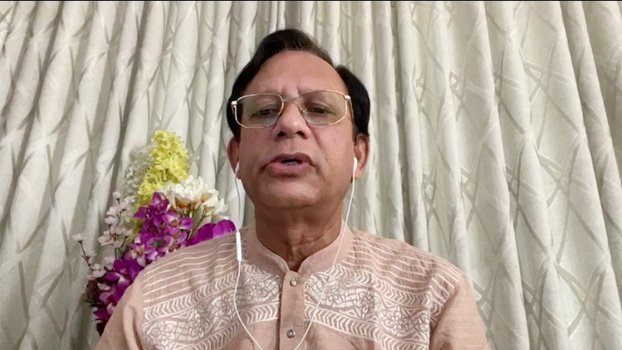Bangladesh starts plasma therapy with high hopes
Doctors to collect Covid-19 survivors’ blood from Saturday

Doctors at the Dhaka Medical College Hospital (DMCH) will start collecting blood from the Covid-19 survivors on Saturday next for reinfusing into the sick to examine the prospect of century-old ‘convalescent plasma therapy’ for the treatment of the pandemic corona disease.
It is being seen as a ‘stopgap measure’ globally as none of the many options being explored from using new drugs to existing drugs and vaccine development has been fast enough to keep up with the pace of the coronavirus spread.
“This is the right time to do so since we have no drugs, no vaccines. When we’ll have drugs, then plasma therapy will not be required,” Prof MA Khan who is leading the initiative, told Bangladesh Post.
“We will start collecting plasma from Saturday. It’ll take time to give it to patients since we have to select patients and prepare the plasma for reinfusing”.
Prof Khan, head of the haematology department of the DMCH, was also the key doctor who started the sophisticated bone marrow transplantation in Bangladesh.
They are depending on doctors and members of the police force, who survived from the virus, for plasma which is the liquid portion of blood that remains when all red and white blood cells and platelets have been removed.
It was over a hundred years ago that Emil Behring was awarded the first Nobel prize for physiology and medicine for his work demonstrating that plasma could be used to treat patients suffering from diphtheria.
After someone is infected with a virus like the novel coronavirus and recovers, their blood is rich with antibodies that their immune system produced to help them fight the virus off.
Giving the antibody-infused blood plasma to a newly sick person, who may not have antibodies yet, doctors hope that could help them fight the virus and recover more quickly.
Studies during the 1918 flu pandemic showed that such plasma infusion therapy was an effective treatment.
Convalescent plasma has been trialled as a therapy in previous coronavirus outbreaks and was also tested during the Ebola virus outbreak in 2013-2016.
During this pandemic, there are several studies conducted in China where the virus first emerged in December last year showed that the plasma therapy is safe and improves patient outcome.
Prof Khan is also optimistic. He proposed the government to see the prospects of plasma therapy in Bangladesh in April.
He held in a meeting with the officials of the Directorate General of Health Services on April 12 following which the government has formed a committee to carry out the procedure further forward.
His proposal was forwarded to the health ministry for approval.
He has also submitted his research protocol to the Bangladesh Medical Research Council (BMRC) ethical committee for approval.
Since the BMRC and the health ministry are taking time, Prof Khan started the process of collecting plasma on Saturday by taking consents from the local ethical committee of the DMCH.
He told Bangladesh Post that they would infuse plasma to 45 patients who would be observed against similar number of patients without getting plasma therapy.
“Since there is no harm to patients if we can safely introduce convalescent plasma and since we don’t have any treatment option either, I think we can save many lives by using it,” he said.
To carry out the whole study, he sought Tk4 million from the health ministry for the DMCH.
“It’s because the plasma collection kits cost Tk8000 to Tk12,000 each. Besides we will need kits for antibody testing which will cost Tk600,000 in total. We have ordered that (antibody kits) from Spain,” he said, adding that some diagnostic tests would be needed to be done from private laboratories.
Meanwhile, the number of people becoming sick and dying due to pandemic continues to rise in Bangladesh.
The government till Thursday confirmed 18,863 cases and 283 deaths since the first detection of the outbreak in Bangladesh on March 8.
“We need to start it (plasma therapy) now. We cannot wait. If we can save a few lives, that will be huge contribution,” he said, adding that to get better outcome, plasma needs to be infused at the early stage of an infected patient.
“In China they found even patients on ventilators also recovered. But its better if we can give (plasma) when the breathing problems start,” he said.
“Oxygen level has been increased in blood. Pneumonia situation improved and the virus also disappeared after seven days,” Prof Khan said, citing some highlights of the China studies.



